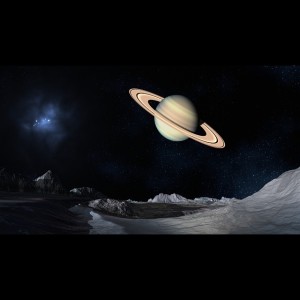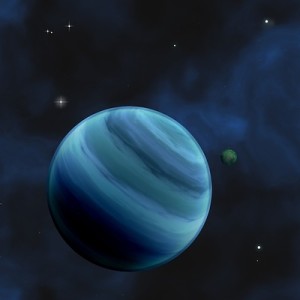Episodes

Monday Oct 28, 2019
Episode 083 - Astrobiology and the Search for Life with Jonathan Lunine
Monday Oct 28, 2019
Monday Oct 28, 2019
- Dr. Jonathan Lunine is the David C. Duncan Professor in the Physical Science and chair of the Department of Astronomy at Cornell University. He is also the vice president and a co-founder of the Society of Catholic Scientists.
- In this “part 5” of our interview, Dr. Lunine notes that planetary science was not always a distinct field. It drew upon components of astronomy or the geological study of the moon, for example. Astrobiology, with a goal of studying microbial life forms that may be found on exoplanets, is now at the point of relative infancy where planetary science stood about 50 years ago.
- Enceladus, one of the dozens of moons orbiting Saturn, is one site worth inspecting in the search for life. It could be based on carbon-bearing molecules different from those found in Earth life. The Cassini mission reported on plumes of water vapor and ice emanating from that moon. Dr. Lunine was part of a group proposing a mission called Enceladus Life Finder.
- Saturn’s moon Titan has seas filled with liquid methane. Could there be a form of biochemistry that works in liquid methane? It’s worth looking for, Dr. Lunine said.
- The Society of Catholic Scientists, with more than 1,000 members, is expanding its activities. The international group’s next annual meeting will consider the possibility of extraterrestrial life and the implications of such discoveries relevant to faith. The conference will be held in June 2020 at Providence College.
- Image by Reimund Bertrams from Pixabay

Monday Oct 21, 2019
Episode 082 - Extraterrestrial Life and Biosecurity with Jonathan Lunine
Monday Oct 21, 2019
Monday Oct 21, 2019
In this week's episode, we discuss the possibility of extraterrestrial life in our own solar system. Dr. Lunine talked about extraterrestrial life. It’s very possible that at least microbial life exists on other planets, he said, but the chances of complex, multicellular life are much more difficult to estimate.
We simply don't know what the possibilities are for life beyond the chemistry that it uses here on Earth. A potential tragedy that we would want to avoid at almost any cost would be the introduction of terrestrial microbes into a viable environment elsewhere, where they could become invasive species, grow and potentially outcompete the native life, which we would never get the chance to study and understand. NASA and other space agencies have policies in place to address this risk... hopefully, they will work.
Dr. Jonathan Lunine is the David C. Duncan Professor in the Physical Science and chair of the Department of Astronomy at Cornell University. He is also the vice president and a co-founder of the Society of Catholic Scientists.
Christianity and Extraterrestrials?: A Catholic Perspective , by Marie George, is a book worth reading, Dr. Lunine said.
He thanked all those who spoke at the 2019 conference of the Society of Catholic Scientists, and he commented on the high quality of the event. The website provides links to several TSSM episodes interviewing conference speakers.
Watch videos of speakers here.
Image by Reimund Bertrams from Pixabay

Monday Oct 14, 2019
Episode 081 - The Exoplanet Revolution with Jonathan Lunine
Monday Oct 14, 2019
Monday Oct 14, 2019
- Dr. Jonathan Lunine is the David C. Duncan Professor in the Physical Science and chair of the Department of Astronomy at Cornell University. He is also the vice president and a co-founder of the Society of Catholic Scientists.
- In this “part 3” of our interview, Dr. Lunine talked about exoplanets. The discovery of planets outside our Solar System has revolutionized planetary science.
- The Kepler space telescope mission, with its nine-year voyage which ended last year, made possible the detection of thousands of planets. It’s now understood, Lunine said, that planet formation is a common part of star formation.
- Lunine noted that Cornell University, where he is on the faculty, has many new avenues of astrophysics and planetary science research. The Carl Sagan Institute hosts a multidisciplinary team studying exoplanets.
- Half of this year's Nobel Prize in Physics went to Michel Mayor and Didier Queloz for their discovery of the first exoplanet around an ordinary star.

Monday Oct 07, 2019
Episode 080 - The Culture of "Science vs. Religion" with Jonathan Lunine
Monday Oct 07, 2019
Monday Oct 07, 2019
- Dr. Jonathan Lunine is the David C. Duncan Professor in the Physical Science and chair of the Department of Astronomy at Cornell University. He is also the vice president and a co-founder of the Society of Catholic Scientists.
- In this “part 2” of our interview, Dr. Lunine cited the book Secularity and Science by Elaine Ecklund (mentioned and linked in episode 79) and co-authors. The perceived conflict between faith and science is largely a Western phenomenon, according to Ecklund’s research, and it’s especially visible in the United States. Elsewhere, cultural education more fully incorporates an education about religion, so these people are more comfortable with the integration of the two.
- He said Catholic news services and The Christian Science Monitor are among the organizations where journalists are more likely interested in the combination of topics in science and religion.

